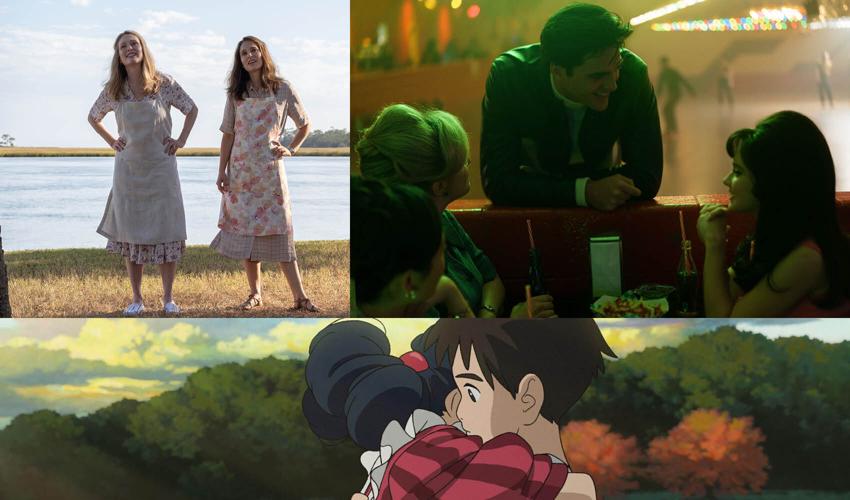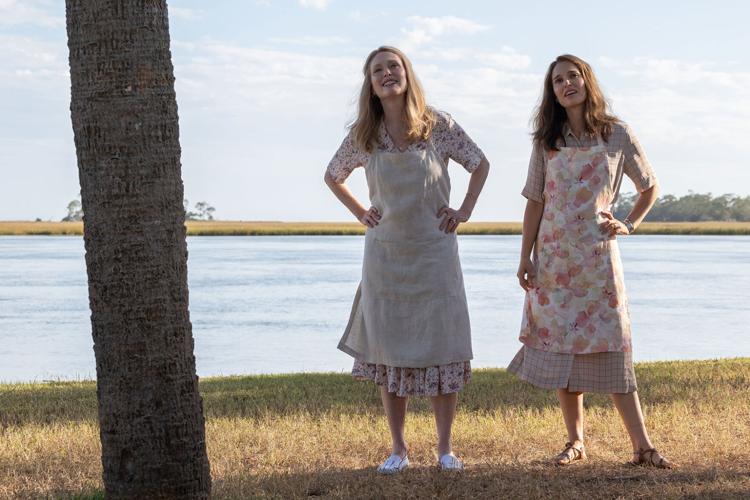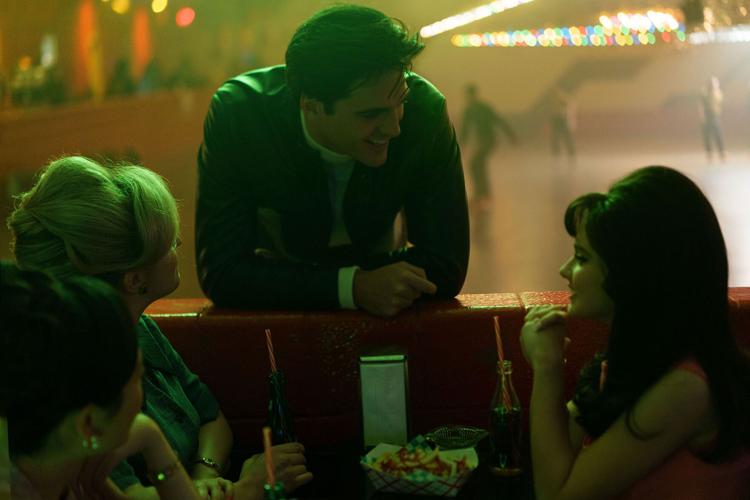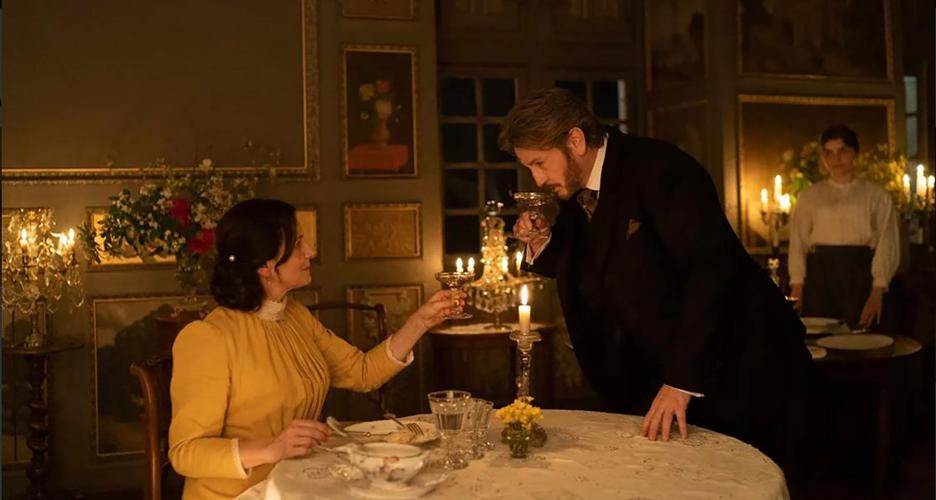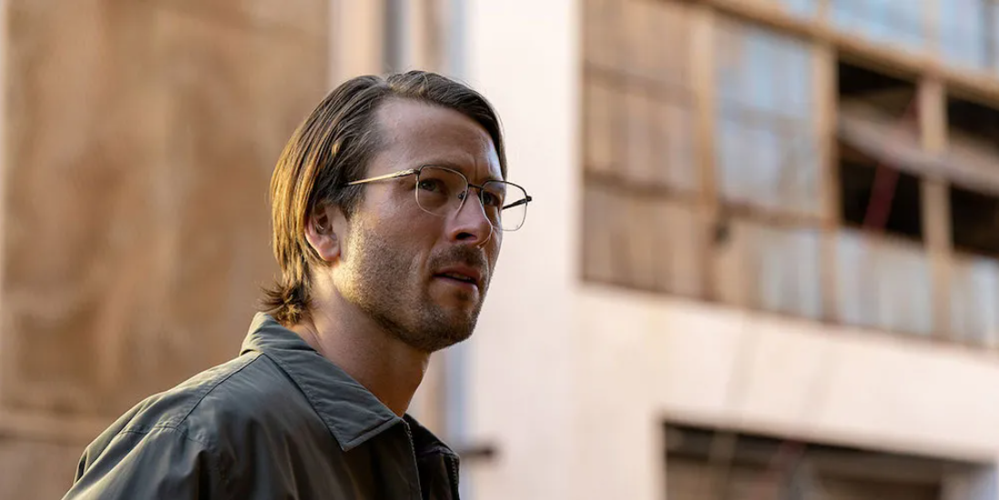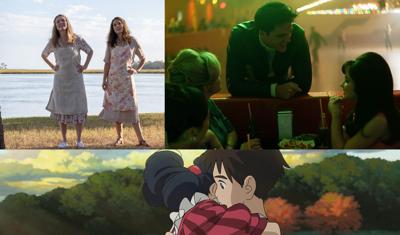Undertaking these expansive festival overviews comes from two very distinct instincts. One is curatorial, to let you know what’s coming, and what’s good, and how the dominant narratives in global cinema are shaping up. The other is proactive, so that as viewers, if something strikes your fancy, you can reach out to the venues, local festivals, and microcinemas to say, “Hey, I wanna see this.”
Especially given the situation that the SAG-AFTRA strike has revealed regarding the steep income inequality in the business, there’s a lot of space for weird and unconventional films to find a home in front of your eyes. The focus here is on this year’s 61st New York Film Festival (out of Lincoln Center), as well as the 35th annual NewFest (NYC’s premier LGBTQIA+ film festival) and the Seattle Queer Film Festival (part of Seattle’s Three Dollar Bill Cinema). In just over three weeks, I watched 66 films. So get ready for some recap, along with whatever current release info is known at press time.
The Best
The Beast (NYFF; opens in 2024): Real talk: Bertrand Bonello may be the best filmmaker working at the moment, and this is his Mulholland Drive, his 2046 and his Cloud Atlas all at the same time. I’ve never been more terrified by a movie that isn’t even a horror film, and Léa Seydoux has a scream that tears through reality. Also, Guslagie Malanda’s looks are top-notch.
All of Us Strangers (NYFF/NF/SQFF; opens in January): It will take time to rationally explain why this film destroyed me utterly. Just know that it is the complementary speculative-fiction/queer “what if” exercise to The Five Devils, and there’s a needle-drop herein that made me turn to colleague, friend and occasional Scene contributor Steve Erickson and say “automatic five stars.”

Do Not Expect Too Much From the End of the World
Do Not Expect Too Much From the End of the World (NYFF; opens in 2024): La Dolce Vita for the influencer age. Rigorous and transformative, with an incredible central performance from Ilinca Manolache. Bobiţa forever.
Poor Things (NYFF; opens Dec. 15 at the Belcourt): Surreal, deeply political, incredibly funny. If your kink is shoulders on outfits, meet your new fave. Emma Stone is in it to win it, Mark Ruffalo has been studying Matt Berry, and Yorgos Lanthimos has never made a bad film.
Fairyland (SQFF): A heartfelt and deeply sincere portrait of a single gay dad (Scoot McNairy) raising his daughter in ’70s/’80s San Francisco, riding the crest of gay liberation and colliding with the Plague Years and the Reagan era. Subtle and sweet, this one slips in under your skin.

May December
May December (NYFF/NF; opens Nov. 17): Nobody can juggle tone like Todd Haynes. Deconstructing itself even as it tightens its narrative screws, May December is the kind of film you sit, slack-jawed, in awe of. It features three new additions to the pantheon of Julianne Moore line readings, and Natalie Portman hasn’t been this good since Black Swan. Delicious both ways.
Menus-Plaisirs — Les Troisgros (NYFF): Frederick Wiseman is a global treasure. This movie is four hours long and it flies by. Even when something disgusting (like sweetbreads) is being prepared, it’s still captivating. And I would spend hours watching all of this.
Radical and Experimental Forms
Orlando: My Political Biography (NYFF/NF): I would love to make the Tennessee legislature watch this and then vanish, leaving behind their medical devices, hairpieces, prostheses and the other bodily modifications they seem to find so troublesome to fall to the ground. This is a deeply funny and moving work of trans liberation, with bonus points for appearances by Pierre et Gilles and Virginie Despentes, as well as a killer musical number in a psychiatrist’s office. Virginia Woolf lives!
Pictures of Ghosts (NYFF; opening in 2024): The personal is political. You best believe that I’ve put seeing a film at the São Luiz Cinema in Recife, Brazil, on my bucket list now. Also, an exceptional use of Herb Alpert’s “Rise.”
A Prince (NYFF): This set off a lot of emotional responses, and it’s hard to think of how to discuss it with straight viewers, but director Pierre Creton (a farmer who makes films as a side hustle) has a distinct perspective, and I’ve never seen anything quite like this before. That said, no one is ready for Medusa Dick.
“Laberint Sequences 3D” (NYFF): This one is among the most exciting 20 minutes of the year. A 3D journey through a Barcelona labyrinth that mutates and evolves, becoming something completely unexpected even before it pays tribute to William Cameron Menzies’ The Maze. (No frogboy, sadly.)
Ryuichi Sakamoto Opus (NYFF): An incredibly rigorous experience, a private concert and a proper elegy for one of the greats. When he plays “Tong Poo,” it floored me.

The Boy and the Heron
The Boy and The Heron (NYFF; opens Dec. 8): I would never have guessed that Hayao Miyazaki would make an absinthe film, but the universe still holds some pleasant surprises for us. All the birds say “trippy mane.”
Eureka (NYFF): The kind of art film that has your ass kicked before you even realize just what happened. It’s nimble of genre and ultimately devastating, and very much in unspoken discussion with Killers of the Flower Moon in its depiction of the way Indigenous stories are told and retold.
Maestro (NYFF; opens Dec. 8 at the Belcourt): Say what you will about Bradley Cooper, but he knows how to direct the hell out of a film. It’s very forte fortissimo, if you know what I mean, and it also features the best appearance by Snoopy in a film since Josie and the Pussycats. I dug its vision and yielded to its sound.
“Bleat” (NYFF): A 30-minute silent short with a seven-member orchestra and a 29-person choir enacting a weird rite of recursive sex, death and rebirth — with a surprise conversation between star Emma Stone and Director Yorgos Lanthimos afterward (thanks to a SAG-AFTRA waiver). And if you’ve read any of my work, you’ll know I consider nothing better than a film that portrays a mysterious rite.
Un Rêve Plus Long Que La Nuit (NYFF): A dynamic restoration of a singular French fairy tale — think of it as a feminist contraption movie/rejoinder to Valerie and Her Week of Wonders, but with a pit of writhing gay lizard men and way more of an earthy approach.
Here (NYFF): An earthy, deeply sensual Belgian film about community, the power of soup, and the pathways of life that nature oversees. This is the one to watch with your friend who gardens barefoot and makes life-changing sauces that don’t have names.
Historical Takes
1946 (SQFF): Though I’m normally not a fan of a director making themselves a character in a documentary, this is a fascinating doc about a biblical mistranslation that evangelical Christianity has made into a foundation that they subsequently refuse to learn from. I can see it changing some minds, thankfully.

Priscilla
Priscilla(NYFF; now playing wide): Bridges The Virgin Suicides’ Lisbon sisters and Pablo Larraín’s Jackie/Spencer duo, with impeccable outfits and an exceptional gift for piercing myths and hewing foundations for new ones.
Rustin (NF; streams Nov. 10 via Netflix): Colman Domingo is staggeringly good as one of the secret weapons of the civil rights movement in a delightfully liberating film that the state of Tennessee will gladly ban as a teaching tool. Thankfully, Netflix will put it in more homes than even the legislature can reach into. Also featuring Da’Vine Joy Randolph (currently on screen in The Holdovers) as Mahalia Jackson.
“Pier Paolo Pasolini — Agnès Varda — New York — 1967” (NYFF): Few things summon joy like the Ciné-Tamaris logo. This three-minute short finds Pasolini and Varda in 1967 Times Square, and it is glorious. “What do you think of New York?” Varda asks Pasolini, in French. “Poverty,” he replies.
Hidden Master (NF): A fascinating portrait of legendary photographer George Platt Lynes that features some remarkable interviews with his friends and lovers as well as nude portraits that Lynes shot of them decades ago — which is absolutely a new philosophy in documentary reportage. Its demonstration of the particulars of the passage of time are singular, and it delights in its spicier instincts.
Ferrari (NYFF; opens wide Christmas Day): This one doesn’t feature a whole lot of the formal and technological innovations we expect from Michael Mann, but it’s still utterly captivating. Penélope Cruz walks away with the whole film — she’s the Mann protagonist who’s good at their job to the exclusion of traditional modes of engagement, who lurks but who gets things done. The car wrecks are Cronenbergian and surreal and deeply upsetting, and doubly so because Adam Driver as Enzo Ferrari looks like David Cronenberg.
Occupied City (NYFF): Steve McQueen’s four-hour journey through the history of Nazi-occupied Amsterdam uses only contemporary visuals, demanding the viewer experience what is often compartmentalized as The Past in The Now, and it is never boring and it is never anything less than wrenching. Occupied City is probably too experimental for mainstream attention, but it’s a remarkable piece of work.
Proceduralism
The Delinquents (NYFF; playing Nov. 14 and 19 at the Belcourt): This one is in no way what I was expecting — aside from exemplifying the way that Argentine cinema seems to be serving up kicky genre pieces. Then the second half pivots and deconstructs everything you’ve seen, leaving you all kinds of contemplative. The least conventional heist film I’ve ever seen.
Anatomy of a Fall (now playing at the Belcourt): You realize how poisoned you are by crappy courtroom narratives when you see one this good. I’ve been going on about Sandra Hüller since 2006’s Requiem, and she positively presides in this film. I have complicated thoughts about how this one shakes out, and will discuss it in person with anyone who asks.
About Dry Grasses (NYFF; opens in 2024): Three-and-a-quarter hours is a lot. Paints a mood, to be sure, but is this a portrait of someone adrift in bureaucracy or a petty jackass who manipulates everyone around him? The scenery is gorgeous, and there’s a 90-second detour into Holy Mountain territory I’m still trying to figure out.
The Zone of Interest (NYFF): From the opening overture you know you’re on a whole other level, and this Martin Amis adaptation details the erosion of humanity that has to take place for genocide to occur. Unspeakably relevant, and pitiless in its vivisection of how people can lie to themselves when it serves their interests.
Evil Does Not Exist (NYFF; opens in 2024): You can’t go wrong with crown shyness tracking shots and demystifying deer, but this may be my favorite Hamaguchi. It details the recursive brick walls of modern land development as well as the frustration that comes from not being able to trust anyone anymore.
Green Border (NYFF): You might worry that, at its worst, Green Border is going to be another Crash (sex-criminal Crash, not sexy car-crash Crash). But at its best, it punches through the narcotized haze of being alive right now and explores why some of the worst people always flock to border control positions. This movie is effective enough that the Polish government is currently persecuting director Agnieszka Holland.

The Taste of Things
The Taste of Things (NYFF; opens early 2024): We’ve all seen bunches of Juliette Binoche films, but none of them is this captivatingly focused on the act and love in food preparation — and through this, we learn to appreciate her as an actress all over again. Be sure to eat beforehand or your digestive system will never forgive you.
The Strangler (NYFF): A perverse marvel that never lets you catch your breath in any sort of morally certain space. The fact that Paul Vecchiali made this in 1970 is a retroactive challenge to all transgressive cinema, both to take more chances and also to be this rousingly entertaining. So exponentially French in the best ways.
Mambar Pierrette (NYFF): Some might call this Yaounde miserabilism, but writer-director Rosine Mbakam finds focus in the process of being a seamstress — that and the way economic inequality is kind of its own self-perpetuating Ju-On curse. Pierrette Aboheu Njeuthat is exceptional, and I felt this in my shoulders, remembering my grandmother’s complicated relationship to her own sewing machine.
The Dupes (NYFF): My first restoration was this devastating 1972 film, the missing step between The Wages of Fear and Sorcerer, in which a transport driver must get three Palestinian refugees across the Kuwaiti border in a metal reservoir with no ventilation at high noon. Director Tewfik Saleh has a keen eye and a gift for the physical, and you will be haunted.
The Act of Being Alive
Big Boys (NF/SQFF): A kindhearted look at growing up plus-size and queer. Big Boys navigates the fraught pathways to adulthood with the care and concern one would hope for, with several great performances (including Dora Madison from the Joe Begos-verse as the supportive woman every gay man wishes he had in his corner) and a smart and practical sense of humor.
Close Your Eyes (NYFF): The fact that Victor Erice made Spirit of the Beehive and Dream of Light should be enough to get anyone interested in watching this exquisite mystery within (and about) the medium of film. A deliberate and devastating portrait of friendship and the passage of time; its surprises are numerous and its heart is vast.
La Chimera (NYFF): Alice Rohrwacher has a gift for magical realism, and this film has a lot going on about modern Italy and its relationship to history, going all the way back to the Etruscans. Also, an exceptional use of Kraftwerk’s “Space Lab.”
Last Summer (NYFF): Catherine Breillat might be pulling a few of her punches here, but even so, no one does provocation quite like she does. It’s as if she took a look at global tastes in pornographies, saw this obsession with stepfamilies, and said, “Let’s parse this out.”
Beyond the Aggressives: 25 Years Later (NF; streaming soon via Showtime): Picking up with four of the subjects of the rightfully classic documentary on masculine-presenting AFAB queer people of color, Beyond the Aggressives isn’t just an update on these fascinating people who have been at the forefront of our evolving perspectives on gender and identity; it also looks at how society has been adjusting its language and awareness of the spectrum of gender. In addition to allowing the subsequent generation to discuss the previous film and its legacy, we’re also right in the midst of how the legal system is dragging its feet when it comes to nontraditional forms of gender expression. If you know the original, this is essential. But even if you don’t know the first doc, this is an important step in how we address and care for our own.
The Sweet East (NYFF; will see some sort of release in December): I don’t know exactly how involved Peter Thiel was with this grungy midnight movie of the moment, but the script (from exceptional film critic Nick Pinkerton) insists on itself a bit too much (and delights in really easy slurs). Union-buster director Sean Price Williams never quite finds the tonal balance (between the Freeway films and ’70s picaresques like Candy) that he seems to be aiming for, but star Talia Ryder is superb, and Simon Rex does an exquisite takedown of Jason Bateman.
The Rest
Strange Way of Life (NYFF): I hate how let down I was by this. The flashback sequence is great, and I liked the emotional space being navigated, but every aspect of the murderous son was like a screwdriver in the emotional bicycle spokes.
Kidnapped (NYFF): I didn’t know about the Edgardo Mortara case, but here’s another thing to be deeply angry at the Catholic Church over. Sadly, only Paul Verhoeven could have made this tonal miasma work.
The Night Visitors (NYFF): A visually immersive and stunning look at the lepidopteral world, but the narration and soundscape are yawnsville. Also, the film does itself a grave disservice by starting with a scientist demonstrating her streamlined method for collecting and killing moths. It never recovers from that grievous error.
Aggro Dr1ft (NYFF): The images are colorful and alive, the score propulsive and visceral. But the dialogue of Aggro Dr1ft is garbage — it feels cut-and-pasted from a seventh-grade YouTuber’s attempted recollection of a samurai film or assassin movie already three rungs degraded down the Xerox ladder — and the film is often rather boring, which is not something I would say about anything Harmony Korine has previously made. I think this completes the Florida Trilogy.

Hit Man
Hit Man (NYFF; streaming on Netflix eventually): This feels a little like that 1996 wave of sub-Pulp Fiction riffs all over again. Glen Powell is very charming about 65 percent of the time, but the film seems way too pleased with itself and isn’t nearly as funny as often as it thinks it is.
Foe (NYFF; streaming via Amazon Prime soon): It never ceases to amaze me when filmmakers forget that sci-fi is a very popular genre and that the audience, on the whole, is way ahead of the film itself. Paul Mescal gives it 120 percent, and there are some great visuals, but it’s on the whole a slow-impact mess.
Music (NYFF): Apparently a deeply minimal take on Oedipus Rex (which is not something I picked up on considering how punishingly spare the narrative is). I was put off by its killing off of a queer character as a means of advancing the “plot,” and there simply wasn’t any kind of emotional on-ramp. If it had leaned just a little more into the classical approach, I could be more forgiving. But as it is, it’s just too austere for its own good.
In Water (NYFF): Of this year’s two Hong Sang-soo films, In Our Time added a cat, which was a step in the right direction. But after 20 years of giving the benefit of the doubt to the prolific director, after watching In Water, I am done. When you make a film that goes out of focus in the second shot and then stays that way for the rest of the film, without ever making that part of some kind of experiential pivot, I feel like I’m being mocked. I kept waiting for some moment that allowed the struggling student filmmaker protagonist to understand that the schism between what he wanted and what he was actually making was insurmountable. I hoped there would be an instance when the characters could actually communicate with one another about the fractures between them. And the whole time I shook with rage at how contemptuous of the audience the whole thing felt. Maybe instead of taking up two slots at countless renowned film festivals, Hong could take the time and effort to make one fully thought-out and well-executed feature. Swiftness and prolificity are great if you’re playing by 48 Hour Film Festival rules.

